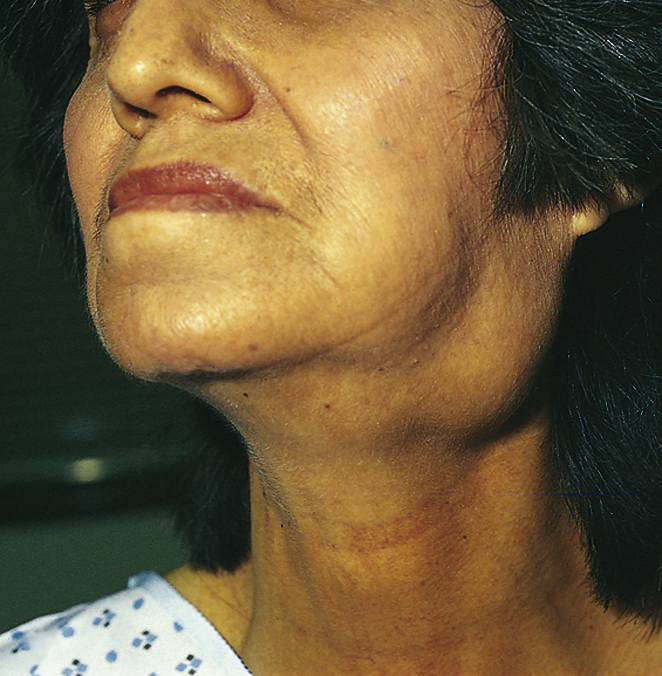Sjögren’s syndrome [Henrik S.C. Sjögren, Swedish ophthalmologist, 1899–1986] , an immunological disorder characterized by deficient fluid production by the lacrimal, salivary, and other glands, resulting in abnormal dryness of the mouth, eyes, and other mucous membranes. The symptoms primarily affect women over 40 years of age. Atrophy of the lacrimal glands can lead to desiccation of the cornea and conjunctiva with damage to the tissues. Atrophy of the salivary glands results in dental disorders and loss of taste and odor sensations. When the lungs are affected, the dryness increases susceptibility to pneumonia and other respiratory infections. Sjögren’s syndrome is frequently associated with Raynaud’s phenomenon, rheumatoid arthritis, Waldenström’s macroglobulinemia, and lymphoma. Treatment includes applying artificial tears and using soft contact lenses that can be moistened often, sipping fluids frequently to prevent mouth dryness, and avoiding medications that tend to deplete body fluids. See also dry eye syndrome, keratoconjunctivitis sicca.

